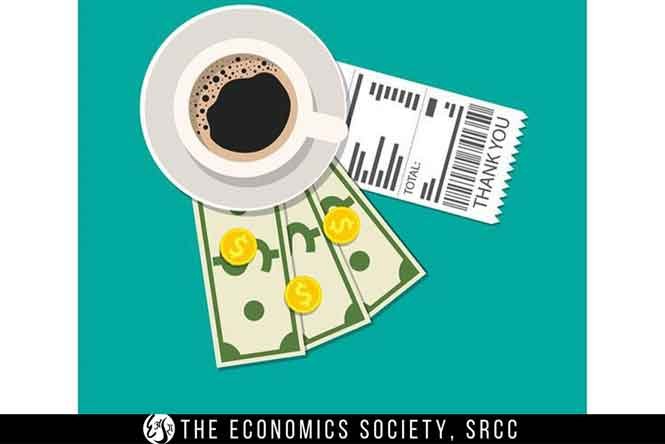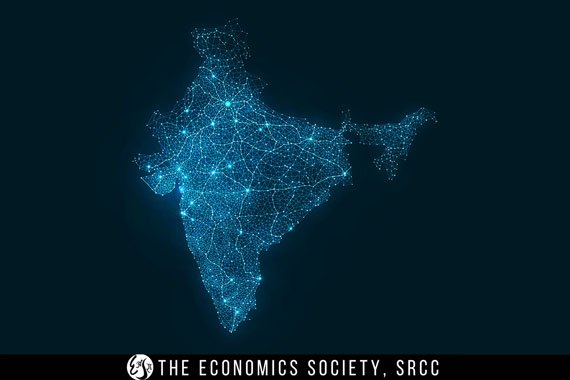
Inflation- The Mother of Political

The average citizen doesn't care about a fiscal deficit, a slowing growth rate or unsustainable development. They do, however, notice an increase in the prices of the products they consume in their day-to-day life. They also find their quality of life declining and their cost of living rising. And well, it doesn’t take much time before the opposition is hounding the government and the public gets discontented. Everyone has heard elders ranting about how the prices now are multiple times what they were a couple of decades ago. This experience is hardly abnormal and is a common phenomenon experienced around the world. The cause of this is inflation, which can be summed up as a decrease in the purchasing power of some currency through time and accompanying rising prices.
It should be noted that even though inflation may be considered harmful to consumers given the rise in the cost of living and decline in quality of life that it leads to, it helps in increasing the prices of assets such as real estate encouraging investments and spending. This shows that a stable and low rate of gradual inflation is suitable for an economy. At the same time, it can be dangerous as it is difficult to predict accurately and can be caused by sudden events. An example of this assertion is the present socio-economic and geopolitical situation all around the globe. The pandemic resulted in economic instability. The Ukrainian conflict caused problems in the supply chain of essential resources like food grains and oil. This has resulted in retail and fuel inflation which is highly troubling, especially for poor and lower-middle-income families. Many have to cut expenses and face hardships leading to a growing sense of dissatisfaction. Sri Lanka is in a deep crisis due to economic mismanagement by the government. Complete usage of foreign exchange reserves and subsequent crop failures in the country led to record-high inflation levels.
It should be noted that even though inflation may be considered harmful to consumers given the rise in the cost of living and decline in quality of life that it leads to, it helps in increasing the prices of assets such as real estate encouraging investments and spending. This shows that a stable and low rate of gradual inflation is suitable for an economy. At the same time, it can be dangerous as it is difficult to predict accurately and can be caused by sudden events. An example of this assertion is the present socio-economic and geopolitical situation all around the globe. The pandemic resulted in economic instability. The Ukrainian conflict caused problems in the supply chain of essential resources like food grains and oil. This has resulted in retail and fuel inflation which is highly troubling, especially for poor and lower-middle-income families. Many have to cut expenses and face hardships leading to a growing sense of dissatisfaction. Sri Lanka is in a deep crisis due to economic mismanagement by the government. Complete usage of foreign exchange reserves and subsequent crop failures in the country led to record-high inflation levels.

It has resulted in a condition of negligible fuel sales, education at a standstill and a health system on the verge of collapse. This led to widespread protests, the storming of ex-president Gotabaya Rajapaksa’s residence and the subsequent desertion of his country. Hungary, Zimbabwe and Germany have shown in the past the disastrous effects hyperinflation can have on the lives of the public. No citizen is left unaffected and the impact is even more widespread in a globalised world like ours. Examples from various South-East Asian countries show how existing political movements have been amplified due to inflation. Also, it is to be noted that cases of hyperinflation and any instability such as that during the 2008 financial crisis have been avoided. Thailand witnessed its largest political event in 1973 when the military dictatorship was overthrown and a democratic system was adopted. A new permanent constitution was also drafted. The year also saw a 10.67% annual change in inflation. The movement was led by Thai students and a major reason they received support from the people was because of the increasing inflation and rice shortages. People didn’t care about politics, rather they wanted changes in their social and economic conditions. >Source: MacroTrends, World Bank The Philippines experienced 50.84% inflation in 1984. Its government had ignored the economic recession and adopted risky industrial projects.
The famous EDSA revolution transpired during this time. This year was marked by a series of political events that led to Ferdinand Marcos going to Hawaii for exile. Corazon Aquino succeeded Marcos and a new constitution was adopted. Source: MacroTrends, World Bank Indonesia’s President Suharto was forced to resign in 1998. The cause of this rise can be attributed to economic mismanagement by the government.The value of the Indonesian Rupiah fell to alarming lows. Rising inflation forced the government to increase interest rates. The USA and IMF were not supportive of the Suharto government. Eerily similar to the Sri Lankan crisis, thousands of students entered the parliamentary building and demanded his resignation. His predecessor Sukarno's popularity was also heavily affected by inflation as high as 1,136.25%. Source: MacroTrends, World Bank The aforementioned cases demonstrate the ability of inflation to stir up the politics of a nation. Throughout history, inflation has been a catalyst and sometimes the final straw in movements and revolutions. It helps garner popular support for a cause.
The general trend also shows a steep fall and then a rather stable rate of inflation after the spike. Retail inflation in India rose to 7.00% in August according to the Consumer Price Index and the Rupee is at an all-time low against the US Dollar. Inflation can be the root of political change because it is such a key issue for consumers and the entire world. It is a major issue close to the voters and plays a significant role in shaping popular opinion towards the government. In conclusion, the government can weave any narrative it wants but inflation is among the most unmistakable indicators of an economy’s present condition known to all. The crucial role played by inflation in bringing about political change is hence undeniable.
Harshit Sharma
High School Student
References:
Jagtap, S., Trollman, H., Trollman, F., Garcia-Garcia, G., Parra-López, C., Duong, L., Martindale, W., Munekata, P. E. S., Lorenzo, J. M., Hdaifeh, A., Hassoun, A., Salonitis, K., & Afy-Shararah, M. (2022). The Russia-Ukraine Conflict: Its Implications for the Global Food Supply Chains. Foods, 11(14), 2098. https://doi.org/10.3390/foods11142098
https://www.macrotrends.net (For obtaining graphs based on World Bank's reports.)
Wright, Joseph J. Jr, The Balancing Act: A History of Modern Thailand, Pacific Rim Press, Oakland, California: 1991
The Roots of the Philippines’ Economic Troubles. (n.d.). web.archive.org. Retrieved October 16, 2022, from
https://web.archive.org/web/20100616054032/http://www.heritage.org/research/reports/1984/05/the-roots-of-the-philippines-economic-troubles
Perera, B. A. (2022, July 14). Sri Lanka: Why is the country in an economic crisis? BBC News. Retrieved October 16, 2022, from https://www.bbc.com/news/world-61028138
Consumer Price Index(for retail inflation in india)

